Academia and industry have been collaborating for over a century, but the enormous challenges facing the industry have intensified the need for strategic partnerships that go beyond the traditional funding of discrete projects. Global Fashion Agenda aims to organise and structure existing strategic partnerships and projects to increase impact. The hope is to bridge the gap by convening academia and industry.
As an essential part of its ambitions for sustainability, Global Fashion Agenda aims to merge the discovery-driven culture of the university with the innovation-driven environment of business and industry. The mission is to unlock the potential for fashion education to make a distinctive and vital contribution to the transformation of fashion.
Youth Fashion Summit
9-11 May 2017 at Copenhagen Concert Hall
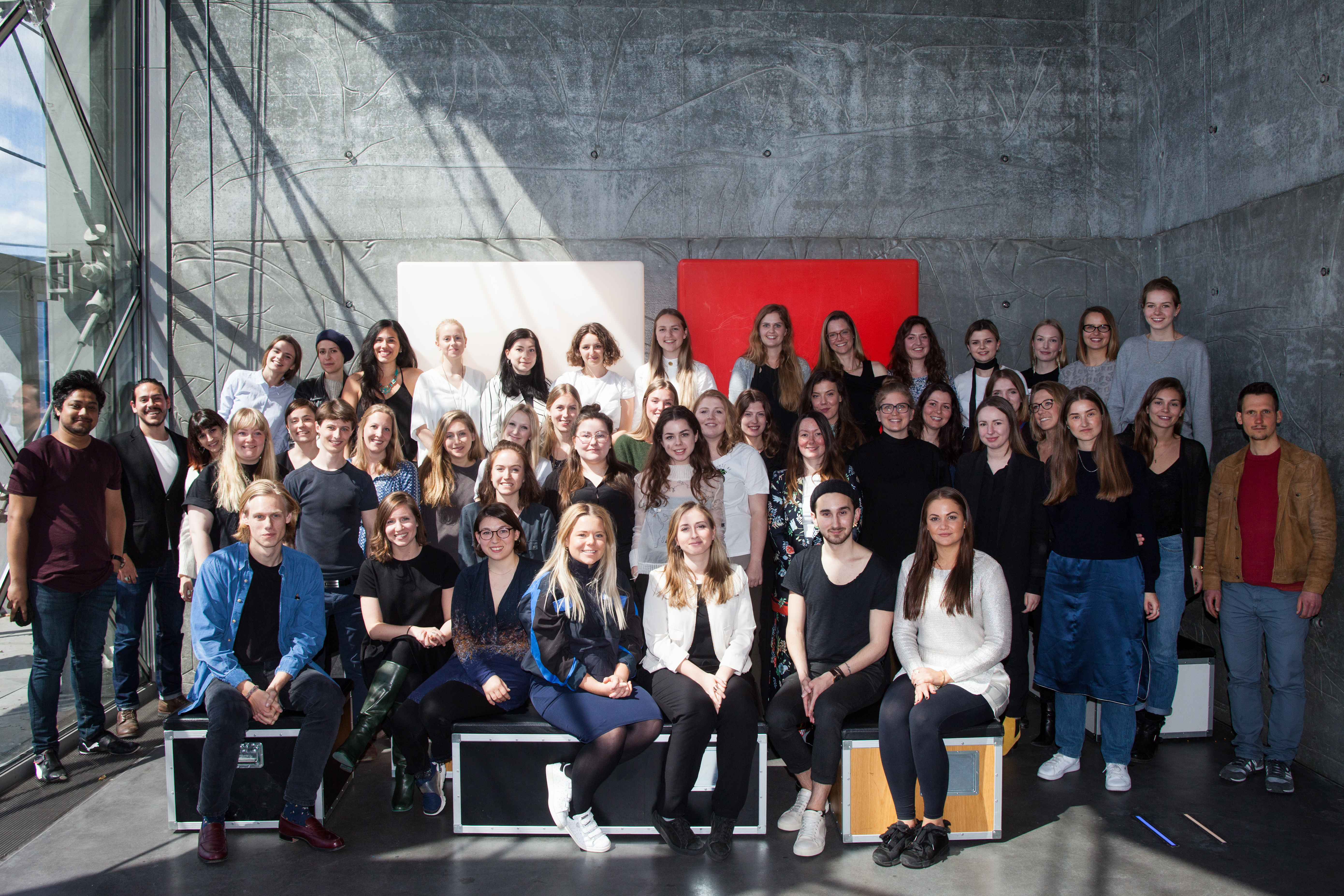
Having grown up with greater awareness of environmental issues than any previous generation, today's youth represent the single best hope for the implementation of sustainable practices in fashion and the wider society. The goal of Youth Fashion Summit is to equip young talents with the knowledge and networks to become true game changers in their future professions.
Susie Bubble
Youth fashion Summit AMBASSADOR
"As somebody who came into fashion through an alternative route, I'm increasingly intrigued and interested in the alternative in fashion. And how that alternative way of thinking – be it innovative materials, processes or concept – can become the mainstream. Sustainability in fashion isn't just the 'right' thing to do but it's where the future of fashion lies."
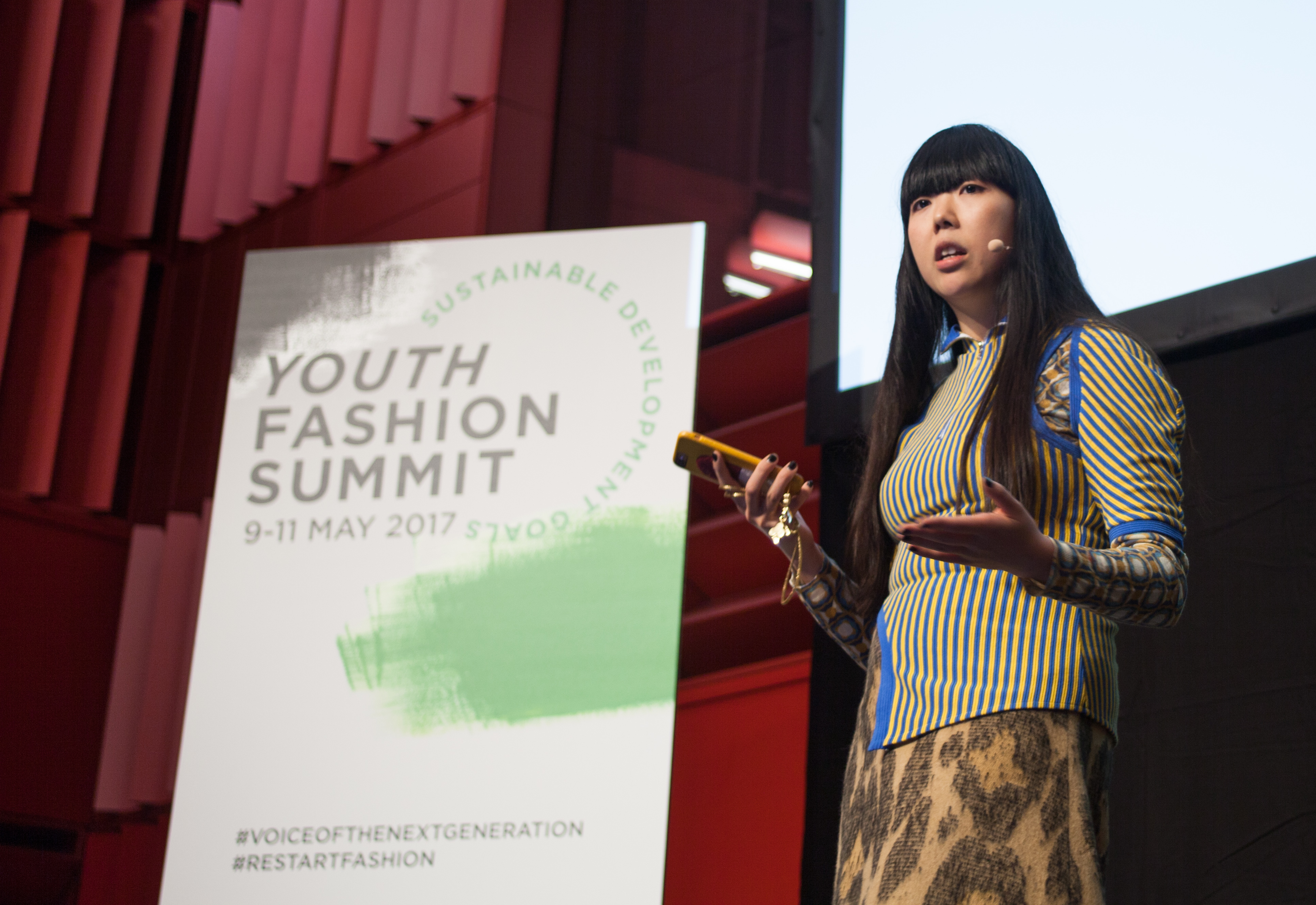
Drafting the first ever UN resolution on fashion
Besides the broader networking and knowledge-sharing agenda, the 2017 Youth Fashion Summit had a specific aim in sight: preparing a resolution on fashion to be presented to the fashion industry and the world’s political leaders.
At last year’s Youth Fashion Summit, students from around the world explored how the 17 Sustainable Development Goals (SDGs) could represent opportunities for companies to align their own sustainability goals with broader societal aims: from gender equality and poverty reduction to responsible consumption and climate action. This year, the same students were invited back to transform their ideas and demands for corporate action related to the SDGs into a draft for a UN resolution — the first-ever concerning fashion.
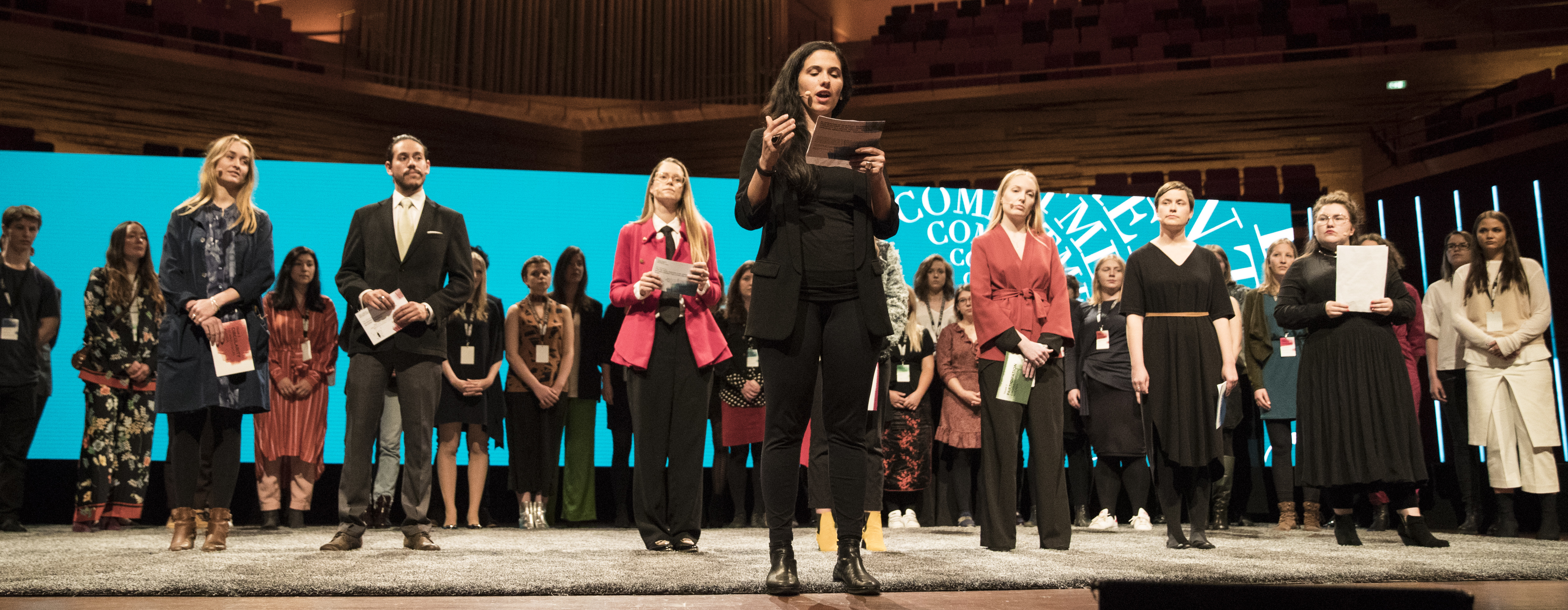
The students presented their resolution on stage at Copenhagen Fashion Summit on 11 May to inspire the industry to act.
The fourth edition of Youth Fashion Summit took place 9-10 May and was hosted by Copenhagen School of Design and Technology (KEA), in collaboration with Global Fashion Agenda, with Swarovski as principal sponsor. Learn more at youthfashionsummit.com.
Educators Summit
10 May 2017 at Copenhagen Concert Hall
Some teachers are already proactive and great advocates for sustainability, but imagine the impact they could have collectively if they were all committed to being knowledge-based drivers of long-term sustainability. The Educators Summit is a platform for teachers to exchange ideas and experiences on how to effectively teach sustainability and to build a strong international network around it. The mission is to bring industry and academia together in order to unlock their interactive potential and to help overcome the challenges facing fashion.
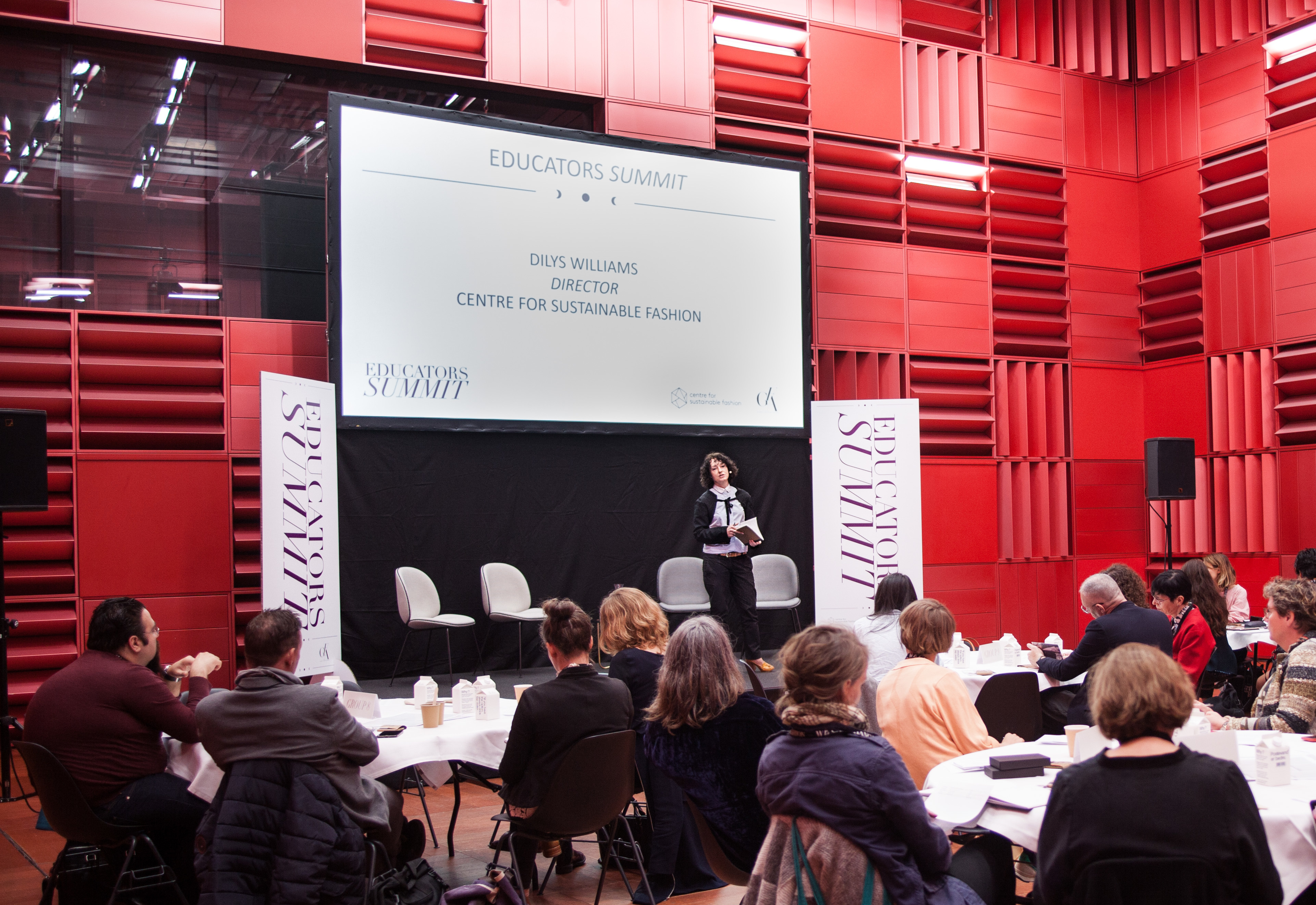
The Educators Summit provided teachers of design, communication and business a convenient and effective opportunity to build and grow their networks, explore new collaborations and help each other navigate the broad, vaguely defined and quickly developing topic of sustainability.
Educators Summit took place 10 May, was delivered in partnership with Centre for Sustainable Fashion and was facilitated by Alex McIntosh, course leader of MA Fashion Futures at London College of Fashion.
Academic Leaders Round Table
10 May 2017
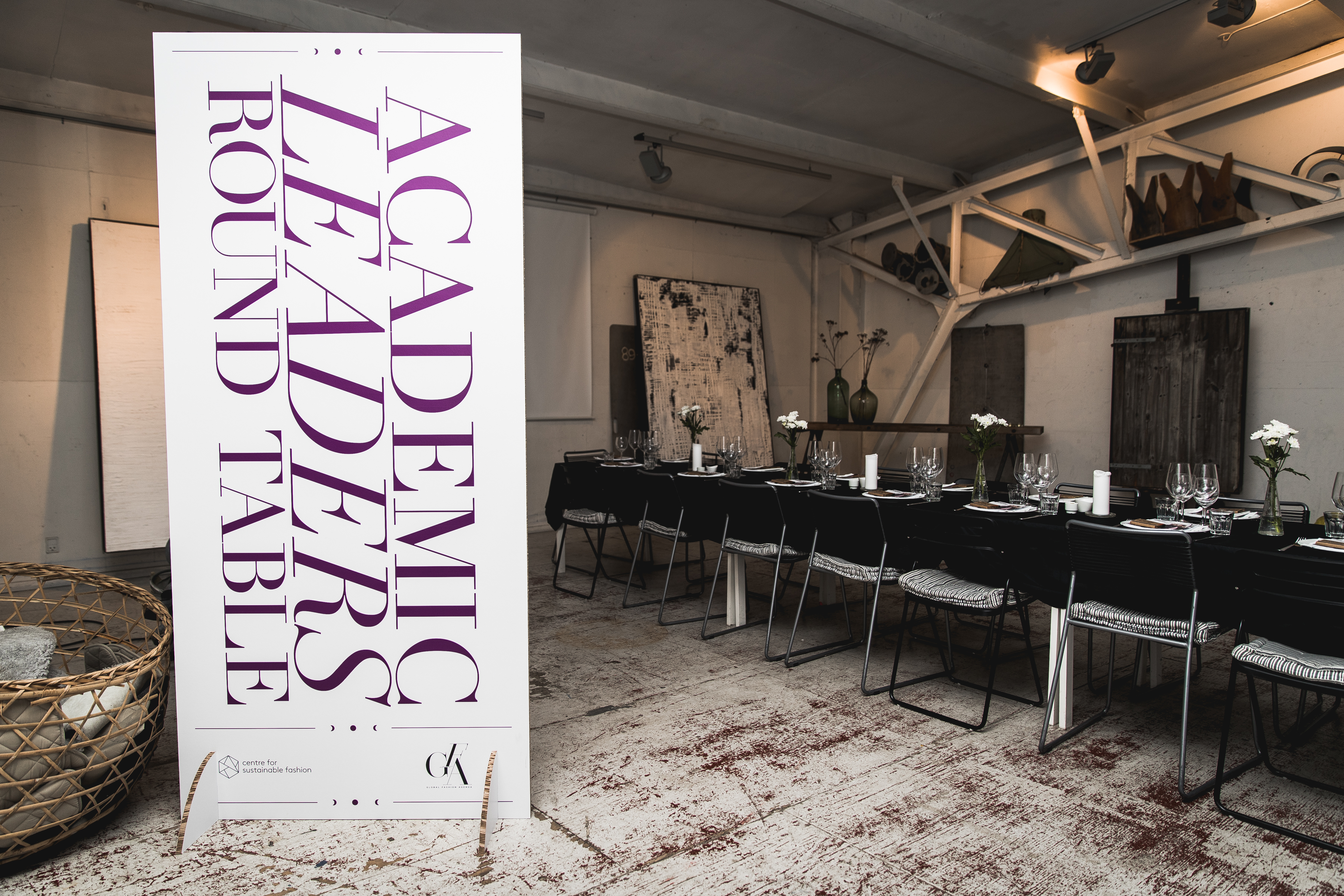
Academic Leaders' Round Table sought to convene the most influential decision-makers from across fashion education, industry and non-governmental organisations for an intimate discussion informing the development of sustainability in global fashion.
The aim is to explore visions of a transformed fashion education and business system through a sustainability lens and to look at ways to increase cooperation. The round table provided an opportunity to discover shared imperatives and ambitions, and to identify what education and business need to conclusively make a distinctive, vital contribution to the transformation of the industry.
The outcome of the Academic Leaders Round Table will lay the basis for an academic white paper, a set of recommendations for academia on how to support the green transition of the fashion industry.
The first of its kind, the Academic Leaders Round Table took place 10 May, was delivered in partnership with Centre For Sustainable Fashion and facilitated by its director, Professor Dilys Williams.


